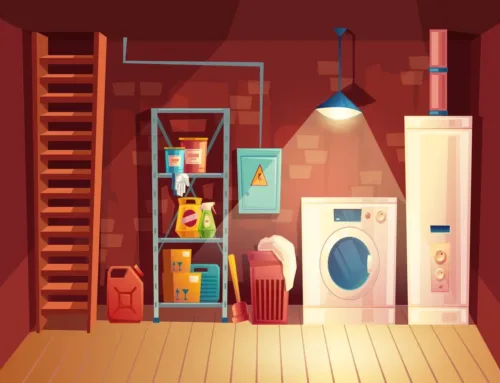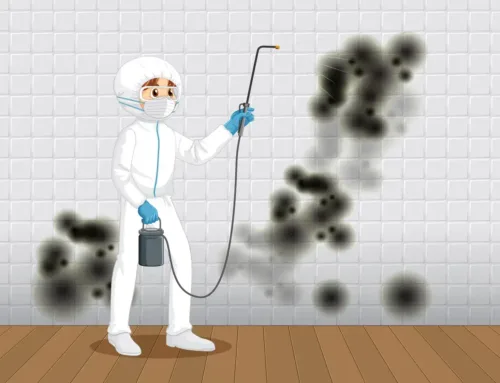Are you about to sign off on your deal but don’t see a home inspection contingency clause? It would be best if you stopped right there.
It’s important to realize the importance of home inspection contingency before the contract becomes binding, especially if you plan to schedule a home inspection after buying the house.
A home inspection contingency clause is added to real estate purchase contracts to ensure that certain conditions are met before finalizing the contracts. With this clause, you can walk away from a purchase penalty-free if your inspection report highlights issues you’re unwilling to accept.
So, it’s better to learn about the inspection contingency in detail before you miss the chance of having things in your favor.
This blog will discuss everything about home inspection contingency, highlighting why it is important.
How Does a Home Inspection Contingency Work?
When a purchase offer includes a home inspection contingency, the terms of the contingency must be fulfilled for the contract to be effective. Home inspection contingencies are important in many real estate contracts, as the buyer can back out of the deal if the conditions are not met.
The buyer has one or two weeks to arrange a home inspection in many states. Throughout the offer negotiations, the duration may be extended or shortened.
Moreover, the inspector and specialists play a critical role when the home inspection contingency becomes effective.
The Inspector
After a visual inspection, the home inspector may offer recommendations if their findings indicate potential problems. Most home inspectors would advise you to have an expert look at it because they are neither licensed nor trained to discuss results beyond their expertise.
For example, if there is low water pressure in the house, the home inspector will note it on the report and recommend that you hire a licensed plumber to look it over. A visual examination by a house inspector cannot identify the source, which could be tree roots creeping into the plumbing system or damaged pipes.
The Specialists
As a buyer, you may wish to see an expert if the home inspector recommends further inspections in the report. For instance, any of the following might require an expert opinion:
- Roof
- Sewer or septic system
- Water systems and plumbing
- Mold
- Radon or methane gas
- Asbestos
- Electrical
- Heating and air conditioning
- Lead-based paint
- Pests and termites
- Chimney
- Foundation and basement
Also note that when you add a home inspection contingency in your sales contract, you must conduct the inspection ASAP. You can use the extra time in further negotiations, repairs, or getting additional assessments.
If your home inspector recommends calling a plumber to test the plumbing system further, you might need quotes from different service providers. You can hire someone to assist you within the set time frame and provide a thorough assessment.
You can arrange the inspections with the help of your real estate agent, who will immediately send the findings to the seller.
What Happens if The Home Inspection Contingency Expires?
If you don’t want to risk losing your deposited monies, it is best to respond immediately to the home inspection contingency clause timeline.
Once your inspection contingency expires, you can no longer use it to escape the contract. This will let the seller keep your earnest money deposit. So, following contingency deadlines is a good idea if you don’t want to risk your deposit money.
Mark your calendars if you don’t want to miss the deadline because it might seem like you’ve enough time to perform the inspection … .but you don’t.
Can You Waive A Home Inspection Contingency?
Well, you always have a choice. There is no hard and fast rule regarding the contingency clause.
Most of the buyers in a competitive real estate market skip the home inspection to speed up the closing process.
It’s important to realize that if you remove the inspection contingency, you’re giving away your right to ask the seller for a lower price, provide credit for needed repairs, or make repairs before closing the deal. This doesn’t mean you also lose the opportunity to inspect the house, but you lose the choice of using its results to negotiate a lower price.
If you’re buying your first home, then it is important to understand the risk of waiving your inspection contingency, as it will directly affect your budget.
Before you make an offer on an uninspected house, you should carefully consider what negotiating away a home inspection will cost you. And how you will mitigate the risks.
Here, you will need to play smartly.
Following are some options you can consider when you think of removing the contingency clause to make your offer more appealing:
Firstly, you can remove the contingency but still opt for getting a home inspection. This will help you negotiate with the seller in advance, and you can inform them about the types of issues or repairs you’re willing to overlook.
Secondly, you can get the home inspected and find major issues. But you can’t ask the seller to negotiate a lower price or make repairs. However, you can still walk away from the deal. In this case, you might lose your deposit, but it will be better than getting stuck in a house where you’ll have a new issue to fix every day on your plate.
But…Is Home Inspection A Requirement?
Generally, home inspection is not a requirement. But buying a house is one of the most major investments of your life, and a home inspection gives you negotiation leverage.
These inspections also give you insights regarding this major investment, including short-term or long-term improvements you might need.
If we consider the loan factor, then again, most of the lenders don’t require a home inspection. But, different types of loans have different requirements. They often want an appraisal highlighting the property’s market value. So, it depends, but it’s best to get a home inspection to turn things in your favor.
Conclusion
In conclusion, a home inspection contingency is one of the clauses in your favor. These won’t only save you from losing your deposited money but also from everyday headaches.
If you’re considering waiving this clause, we recommend not doing so, as it only saves you in the long run.
We tried to jot down everything related to home inspection contingency in this blog. You can always contact us if you still have related questions on your list. We can also help you with hiring the best inspectors for your home inspection needs, as we’ve professionally trained inspectors on board. Reach out to Elite Inspection today and make reasonable decisions for your potential house.





